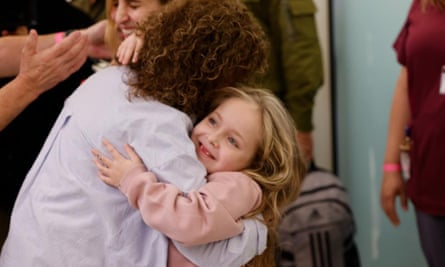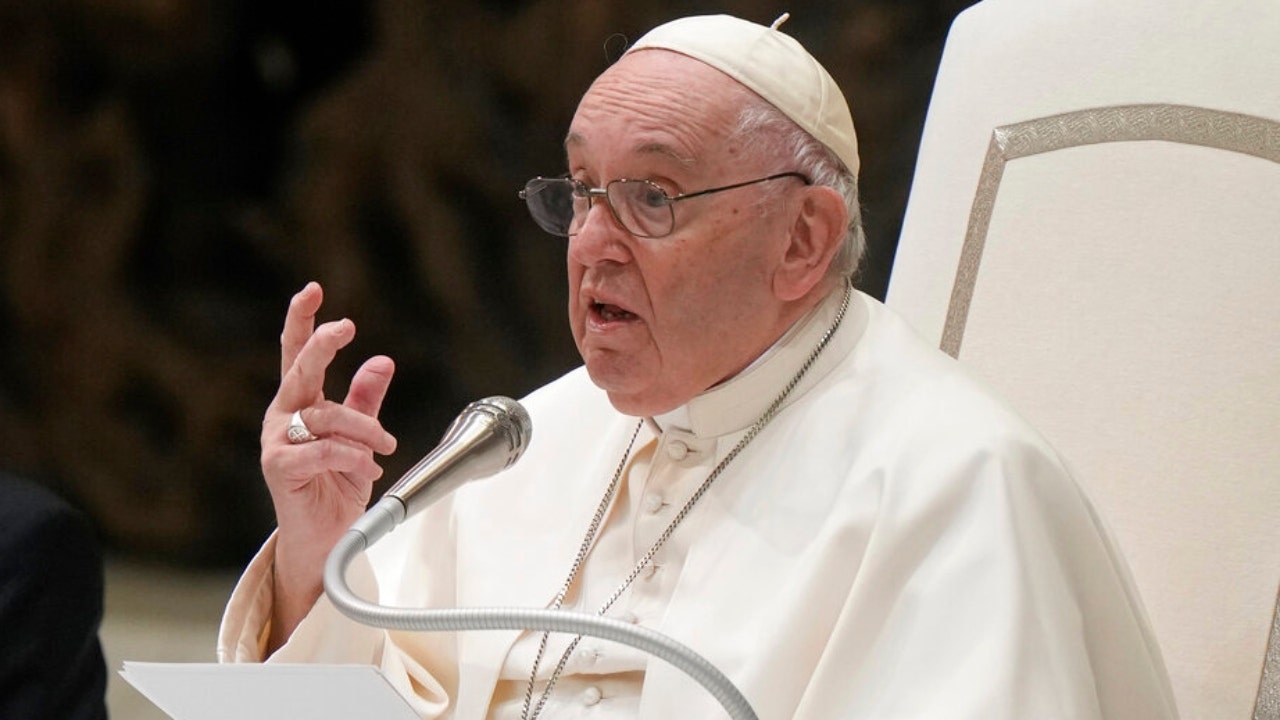For a handful there is relief. A nine-year-old boy, Ohad Munder, is filmed running to meet his father for the first time after being held for 49 days in Gaza. But for the majority of families – now Israel’s most potent social force – there remains anxiety and a desperate hope that the truce and hostage releases can continue.
In some cases the two stories come together. Noam Peiri, a daughter of 79-year-old peace activist Haim Peri, who lived on the Nir Oz kibbutz, learned overnight of a “sign of life” of her father from some of the first group released on Friday, other members of the same kibbutz who were kidnapped by Hamas on 7 October.
“We know he is alive from other people from the community who were released yesterday, and we feel that it brings a lot of hope and yet together we feel very urgent to let them all out. We don’t know how much time they will be able to hold on for,” she said, conscious that her father is on medication after surviving a heart attack.
“From what we know, we assume he is kept under ground,” Noam added, referring to Hamas’s dense but basic network of concrete reinforced tunnels that criss-cross the strip. “And we know that the conditions there are very hard specifically for old people. It’s hard to breathe there, we don’t even know if he can stand.”
The 24 hostages released on Friday, aged between two and 85, appeared to be in good physical health, reunited with family members in hospitals in pictures relayed across Israel. But those like Carmit Palty Katzir, who were in the fortunate position of being able to celebrate the return of her mother, Chana, also focused on those who remained in captivity.

“My mother the hero is with us! She is inspiring and amazing, and has a lot to process,” Katzir wrote on Facebook. “Her return tells us that it is possible, and necessary immediately – to return them all!!” What is less clear is the long-term impact on the former hostages, on their families and on Israeli society and beyond.
Saturday was the 50th day since 7 October, the day of Hamas’s deadly raid across the border from Gaza into Israel, an event that its vaunted military and security community failed to predict. Whilst Israel’s military pounded Gaza, the families of the 240 abductees came together and formed the Hostages and Missing Families Forum to lobby for their release.
Noam Alon, the boyfriend of Inbar Haiman, 27, who was abducted when Hamas attacked the Supernova festival in the southern desert, was waiting for news about her – but was still overjoyed that the grandmother of one of his new friends had been released.
“She’s free now,” he said, referring to Yaffa Adar, an 85-year-old from the Nir Oz kibbutz. “And I’m so happy for him and for her and for all of the family. There are not a lot of moments when we can smile. I want every family to have the same. We are glad for every hostage that got freed, but we are expecting every one [to be] free. We want our government to do everything to continue the deal,” he added, calling for the US and other countries to press both sides to continue negotiations.
For many families of hostages there is little to no concrete information of their health or status, or when they might be released beyond an initial commitment to release 50 women and children. As darkness fell on Saturday, it became clear that there was a delay to the release of the second group of 13, as Hamas demanded that Israel committed to allowing aid trucks to enter northern Gaza.
Alon knows Haiman was captured in the desert from the account of two men who fled the music festival with her, and she appeared in a video released by Hamas a day later. But a common complaint is that no access to the hostages has been given to the Red Cross, which seeks to visit war captives, meaning that many have had no proof of life at all.
Moran Betzer Tayar, whose nephew and wife were amongst those abducted, said: “In any interview, wherever we are in the world, we are asking everybody to pressure the Red Cross or other international organisation to enter inside.”
Those who had family members abducted were, she said, consumed with the effort of trying to lobby for their release, and she said that if nothing else, she hoped countries like Qatar or Iran, which are close to Hamas, might persuade the group to allow access. It was not, she added, a question of politics or “if the war is good or not, if you love Israel, or you don’t. The only issue is to be human. The issue of hostages, it’s an issue of humanitarian aid, and not political.”
#Hope #families #freed #Israeli #hostages #harrowing #uncertainty #continues #Israel

